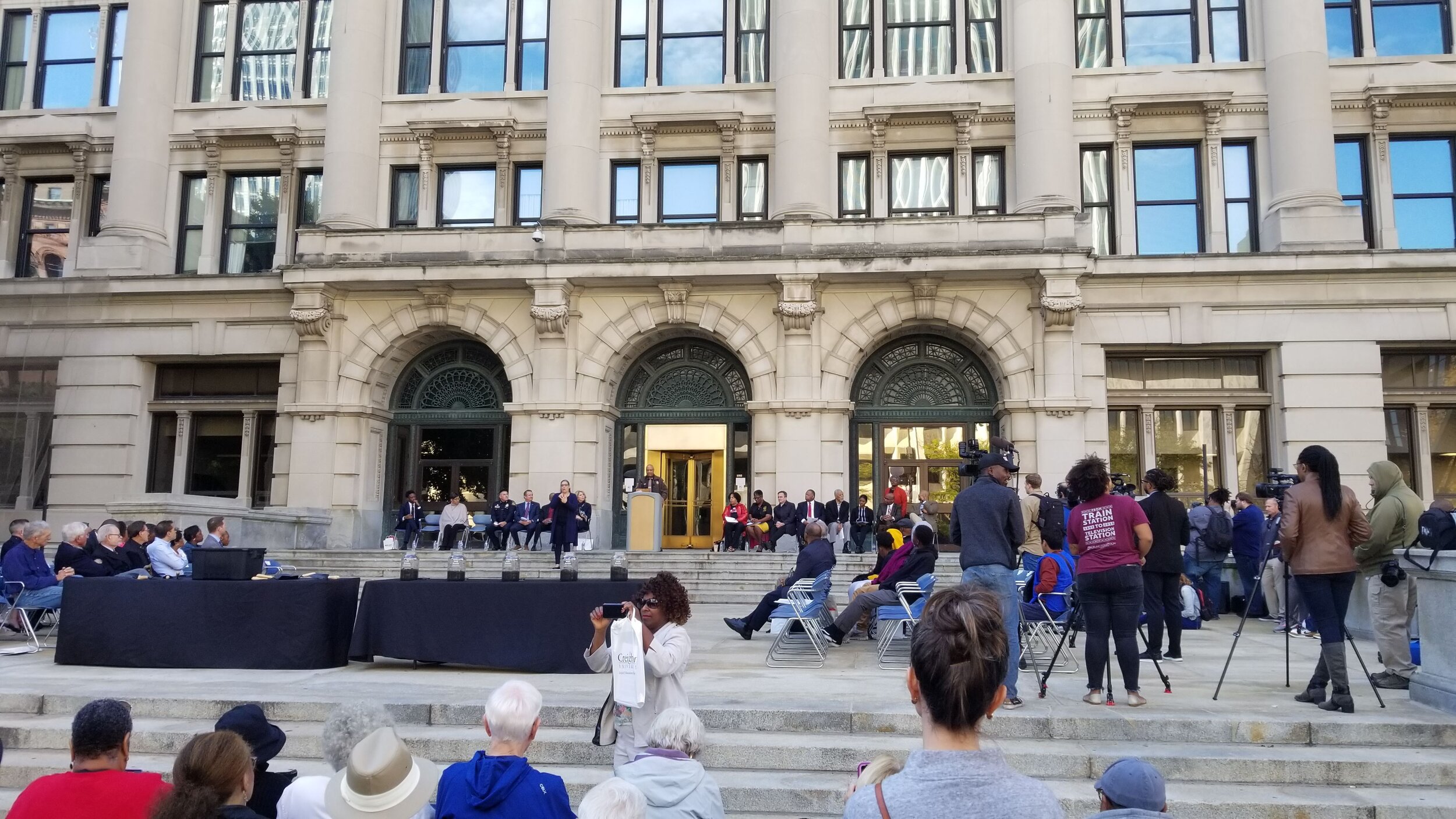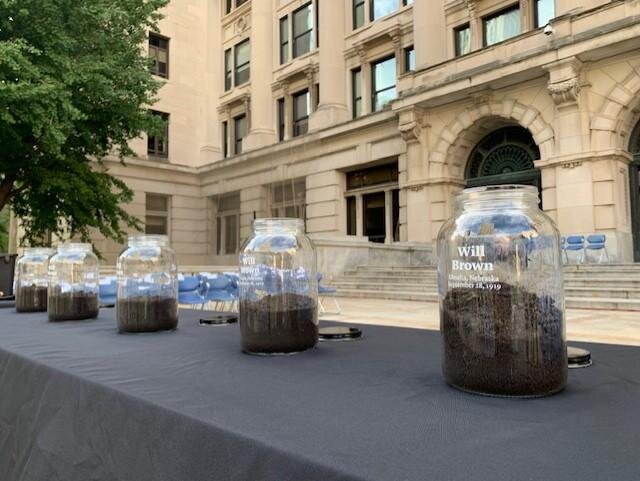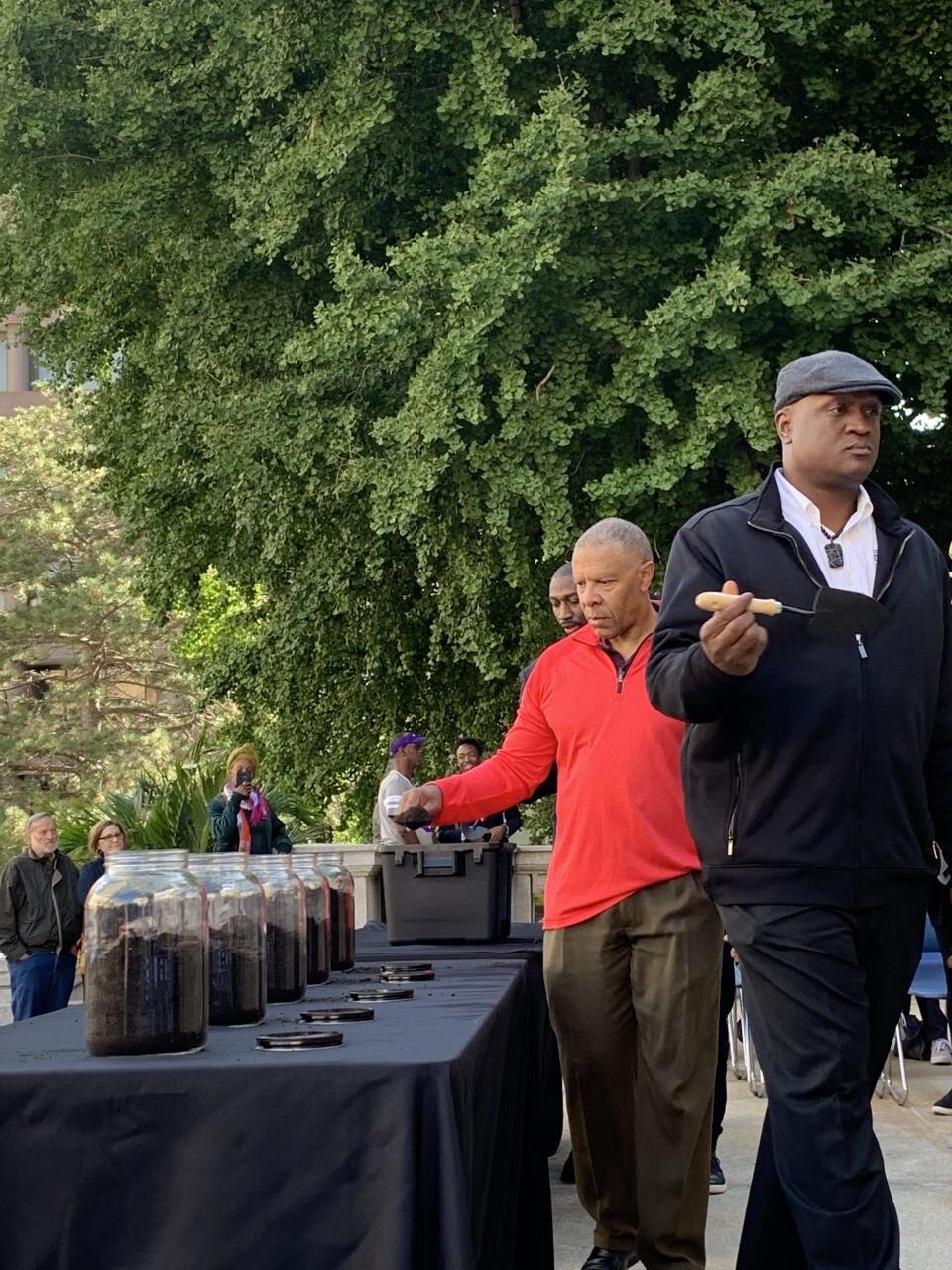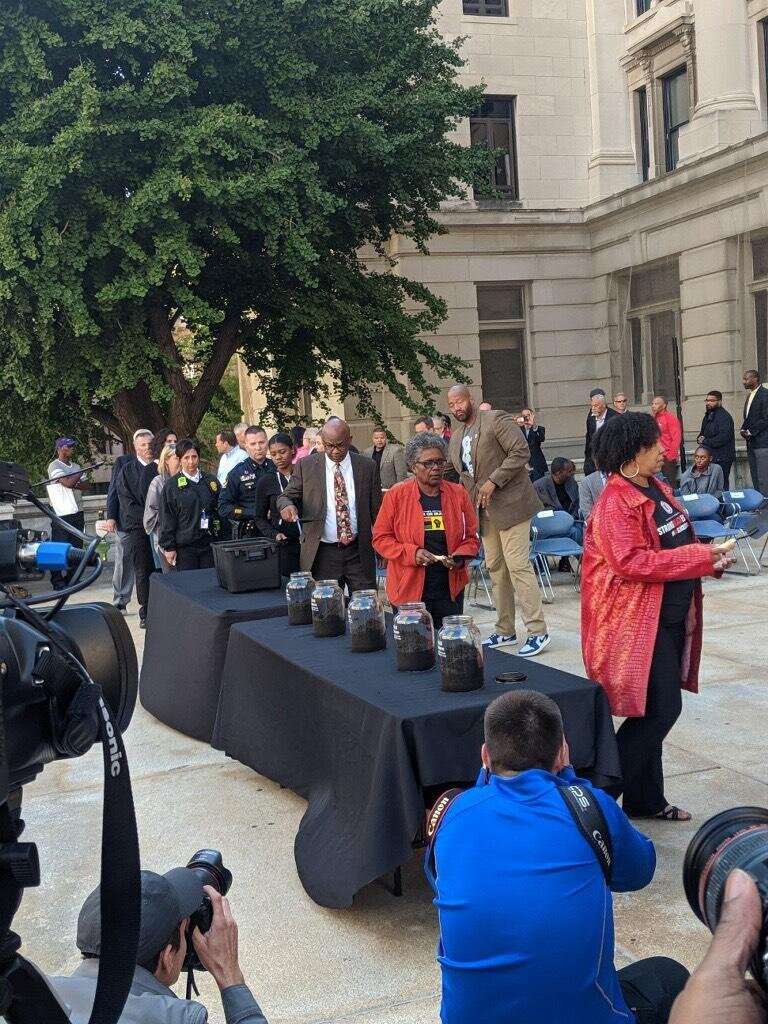Gathering in reconciliation for Will Brown and The Red Summer
Glass jars filled of earth gathered from the ground near the Douglas County Courthouse where Will Brown was Lynched, downtown Omaha 1919
Last September marked 100 years since the lynching of Will Brown; Omaha’s connection to the 1919 national tragedy known as “The Red Summer”, when the US convulsed with violence boiling over from long-simmering racial tensions resulting in lynchings and riots nationwide. Last month also saw the world premiere of Red Summer at Blue Barn Theatre. Located just a few city blocks away from the site of Will Brown’s murder, the play tells his story.
September 28, 1919, Mr. William Brown was murdered by an angry white mob in downtown Omaha, after being brutally beaten, lynched, shot and dragged through the streets. One-hundred years later, Mr. William Brown’s story lives on; he is not forgotten in our city. Beaufield Berry is the playwright author of the chilling and provoking recount of Mr. William Brown’s murder. The Play, Red Summer is a world premiere piece of theatre, and you still have time to see the show. It runs Sept. 26 through Oct. 20 at Blue Barn Theater, not far from the Douglas County Courthouse, where Will Brown lost his life 100 years ago.
The Red Summer play is not the only Omaha performance, exhibit or art display offering points of disquieting reflection on the history of lynching, unjust treatment of blacks, and race in America. There are also exhibits at The Durham Museum and the Joslyn Art Museum. The interactive exhibit, Undesign the Redline is on display at The Union for Contemporary Art, and local filmmaker, Lend Slay Frison III, is producing a documentary film for The Will Brown Project.
These intentional displays of reckoning bring up feelings of horror, pain, and confusion. The event on the courthouse steps was not supposed to make us feel good, and it didn’t. But what we did feel was a space being made for reflection on where we have been and where we would like to go as a community and culture.
At the end of the day, we meet Atticus, standing maybe four and a half feet tall. He is helping his mother who works with Creighton University pass out information packets on the day’s event. When asked what he wants to see in the future, he simply says,
"Get rid of all discrimination and racism in any kind of hate".
The conviction with which he spoke might give all our hearts hope. His mother smiled. Gleaming from ear to ear she said, "I'm surprised that he did it, he's usually very shy".
There is something in that. Sometimes to the most impactful thing you can do, is step out of your normal; to be uncomfortable, because that is part of what reconciliation means.
This story was originally published on October 16, 2019, on kios.org.
KIOS - kios.org/post/gathering-reconciliation-will-brown-and-red-summer





